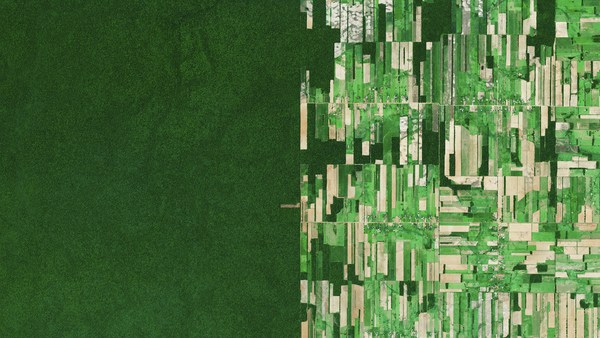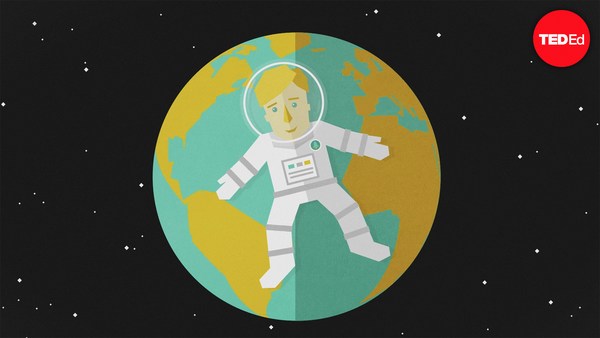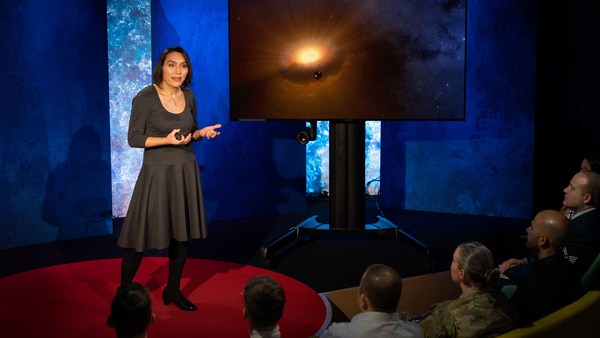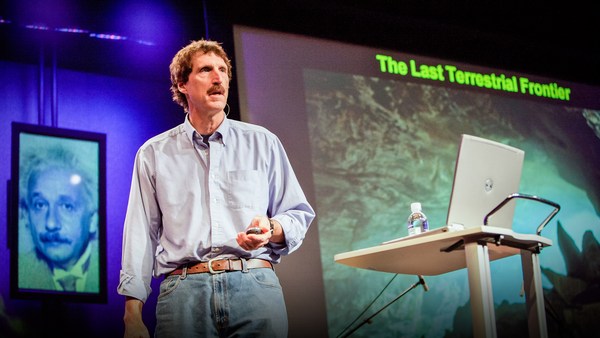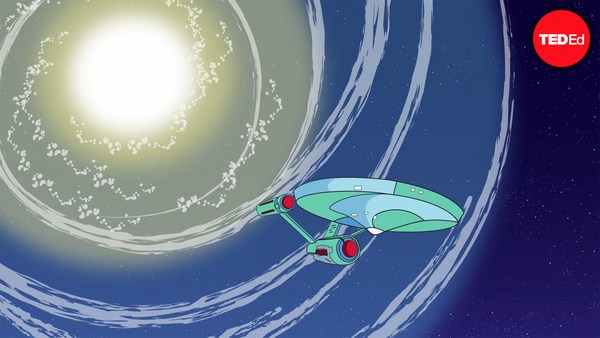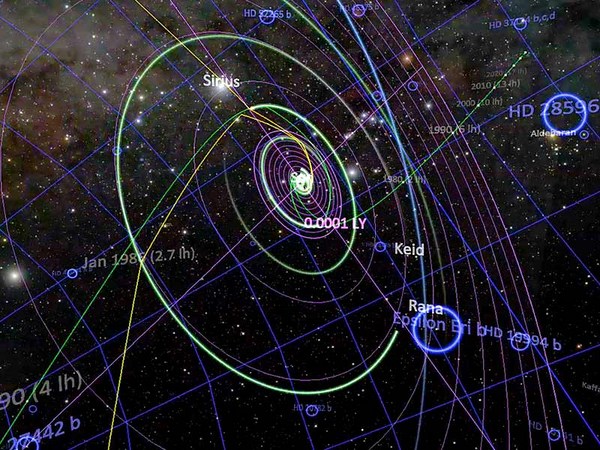I'm an astronaut. I flew on the space shuttle twice, and I lived on the International Space Station for almost six months. People often ask me the same question, which is, "What's it like in space?" as if it was a secret. Space belongs to all of us, and I'd like to help you understand why it's a place that is magic for all of us.
The day after my 50th birthday, I climbed aboard a Russian capsule, in Russia, and launched into space. Launching is the most dangerous thing that we do, and it's also the most thrilling. Three, two, one ... liftoff! I felt every single bit of the controlled fury of those rocket engines as they blasted us off the Earth. We went faster and faster and faster, until, after eight and a half minutes, on purpose, those engines stop -- kabunk! -- and we are weightless. And the mission and the magic begin.
Dmitry and Paolo and I are circling the Earth in our tiny spacecraft, approaching the space station carefully. It's an intricate dance at 17,500 miles an hour between our capsule, the size of a Smart Car, and the space station, the size of a football field. We arrive when those two craft dock with a gentle thunk. We open the hatches, have sloppy zero-G hugs with each other, and now we're six. We're a space family, an instant family.
My favorite part about living up there was the flying. I loved it. It was like being Peter Pan. It's not about floating. Just the touch of a finger can actually push you across the entire space station, and then you sort of tuck in with your toes. One of my favorite things was drifting silently through the space station, which was humming along at night. I wondered sometimes if it knew I was there, just silent. But sharing the wonder of that with the crew was also part of what was important to me.
A typical day in space starts with the perfect commute. I wake up, cruise down the lab and say hello to the best morning view ever. It's a really fast commute, only 30 seconds, and we never get tired of looking out that window. I think it reminds us that we're actually still very close to Earth.
Our crew was the second ever to use the Canadian robotic arm to capture a supply ship the size of a school bus containing about a dozen different experiments and the only chocolate that we would see for the next four months. Now, chocolate aside, every single one of those experiments enables yet one more scientific question answered that we can't do down here on Earth. And so, it's like a different lens, allowing us to see the answers to questions like, "What about combustion?" "What about fluid dynamics?"
Now, sleeping is delightful. My favorite -- I mean, you could be upside down, right side up -- my favorite: curled up in a little ball and floating freely.
Laundry? Nope. We load our dirty clothes into an empty supply ship and send it off into space.
The bathroom. Everyone wants to know. It's hard to understand, so I made a little video, because I wanted kids to understand that the principle of vacuum saves the day and that just a gentle breeze helps everything go where it is supposed to. Well, in real life it does.
(Laughter)
Recycling? Of course. So we take our urine, we store it, we filter it and then we drink it. And it's actually delicious.
(Laughter)
Sitting around the table, eating food that looks bad but actually tastes pretty good. But it's the gathering around the table that's important, I think both in space and on Earth, because that's what cements a crew together.
For me, music was a way to stay connected to the rest of the world. I played a duet between Earth and space with Ian Anderson of Jethro Tull on the 50th anniversary of human spaceflight.
Connecting to family was so important. I talked with my family almost every day the whole time I was up there, and I would actually read books to my son as a way for us just to be together. So important. Now, when the space station would go over Massachusetts, my family would run outside, and they would watch the brightest star sailing across the sky. And when I looked down, I couldn't see my house, but it meant a lot to me to know that the people I loved the most were looking up while I was looking down.
So the space station, for me, is the place where mission and magic come together. The mission, the work are vital steps in our quest to go further than our planet and imperative for understanding sustainability here on Earth. I loved being a part of that, and if I could have taken my family with me, I never would have come home.
And so my view from the station showed me that we are all from the same place. We all have our roles to play. Because, the Earth is our ship. Space is our home. And we are the crew of Spaceship Earth.
Thank you.
(Applause)
